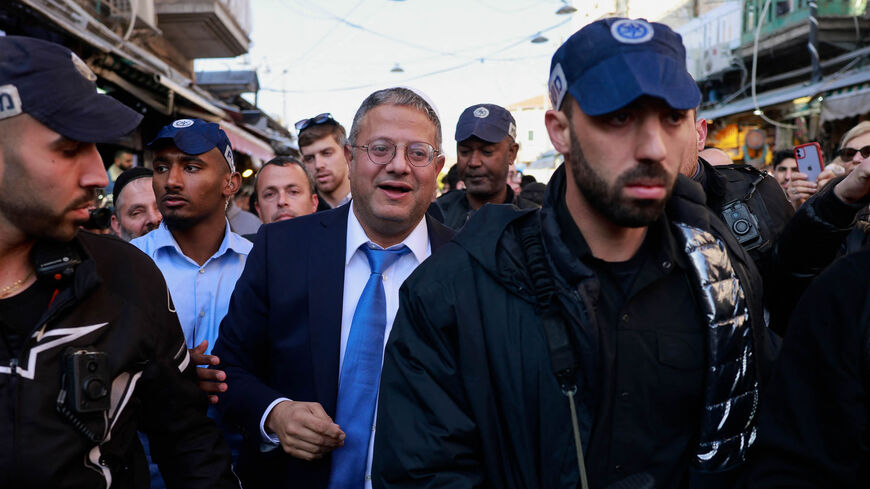Israel’s National Security Minister Itamar Ben-Gvir visited on Thursday morning the Temple Mount compound, known to Palestinians as Haram al-Sharif, on the occasion of the Jewish holiday Tisha B’Av fasting day, while further inflaming tensions and eliciting condemnation from regional countries.
Thursday’s visit was Ben-Gvir’s third to the site this year. His former visits there — in January and May — sparked outrage in the Arab world and were criticized by the United States and France. Washington and Paris both perceived the visits as provocation vis-a-vis Muslim worshippers and Palestinians, because of Ben-Gvir’s extreme-right positions and statements over Israel’s sovereignty of the site. After his May visit, the State Department said it was "an alarmingly provocative visit."
"Holy places should not be used for political purposes. The United States supports the status quo and calls on all parties to respect the sanctity of the place," the department added.
In all, around 1,000 Israeli Jews toured the Temple Mount compound by 10 a.m. on Thursday morning. Police detained 16 Jewish visitors, on suspicion of breaking rules of conduct at the site. Three of them were detained after they bowed down on the spot. The status quo arrangements on the Temple Mount, adopted after the 1967 Six-Day War, stipulate different visiting hours for Jews and for Muslims. They also prohibit Jews from praying aloud at the site or practicing Jewish rituals there. Still, Temple Mount activists have been trying to pray secretly at the compound over the years, including attempts at blowing the Shofar horn on Jewish holidays.
"This is the most important place for the people of Israel where we need to return to show our governance," said Ben-Gvir during his visit. "On this day, in this place, it is always important to remember, we are all brothers; right, left, religious, secular. We are all the same people. When a terrorist looks through the window, he does not differentiate between us and separate us. Unity is important, love of Israel is important."
The Ben-Gvir visit took place amid growing tensions in the West Bank between Israelis and Palestinians. Palestinian Faris Abu Samra, 14, was killed in the early hours of Thursday in clashes that erupted between Israeli military forces and Palestinians in the West Bank town of Qalqilya.
The Jordanian Foreign Ministry slammed Ben-Gvir's visit an hour after it took place. The ministry warned Israel against "the dangerous consequences of allowing the extremists to reach the mount and allow them to carry out provocations."
"The ascent of the Israeli minister of national security to the Temple Mount and Al-Aqsa compound is a violation of the sanctity of the place; it is a provocative step that must be condemned. This is a dangerous escalation that is a blatant violation of international law and the status quo in Jerusalem and the holy places," the ministry's statement said.
A statement issued by the Palestinian Foreign Ministry condemned the entry into the site of both Ben-Gvir and Wasserlauf, arguing the visit constituted “an official Israeli cover for the ongoing invasions and the plans to Judaize Al-Aqsa Mosque and to impose forced changes on the existing historical and legal reality, as an inseparable part of the Judaization of Jerusalem.”
The foreign ministries of Turkey and Saudi Arabia also criticized the visit.
Hamas spokesperson Hazem Qassem blamed Israel for the provocation against the Palestinian people, pledging the group would not allow Israel to carry out its alleged “plans” at the site. “Our people will defend the identity of the blessed Al-Aqsa Mosque and protect its Islamic and Arab character at all cost, because Al-Aqsa has always been the trigger for revolutions and rebellions,” read Qassem’s statement.
Washington reiterated its stance in a statement from the US embassy in Jerusalem, that it "stands firmly for the preservation of the historic status quo with respect to the holy sites in Jerusalem. Any unilateral action or rhetoric that jeopardizes the status quo is unacceptable.”








